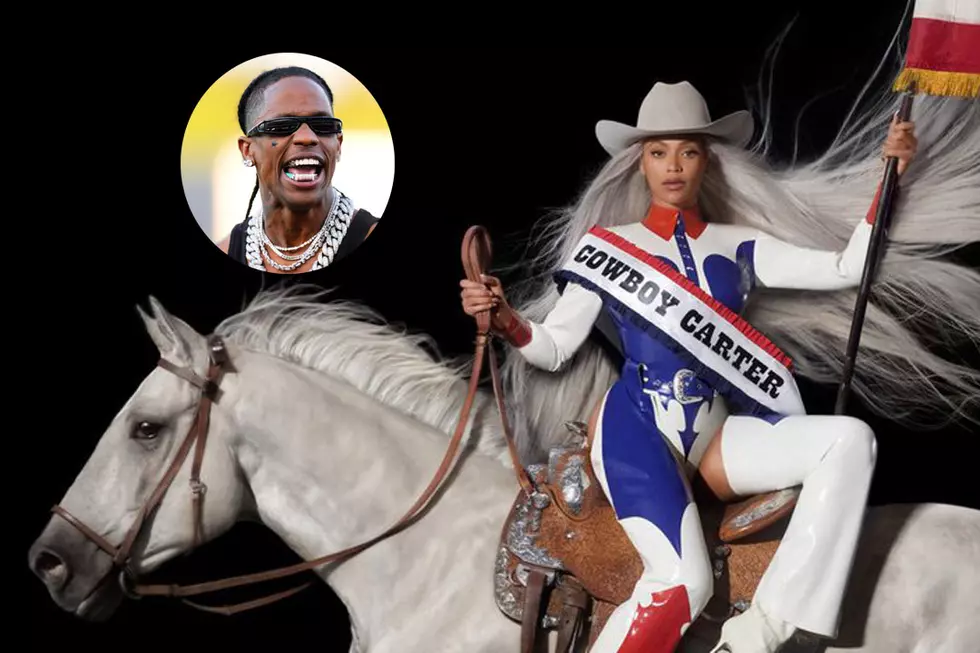
MC Lyte Says Hip-Hop Needs Gender Balance
Among the new collection of essays by Hillary Rodham Clinton, Eva Longoria, LeBron James and more in The Shriver Report: A Woman's Nation Pushes Back From the Brink, Beyoncé’s essay stating that gender equality is a myth made headlines everywhere. In the essay, the singer, credited as Beyonce Knowles-Carter, poignantly points out that women’s rights still today have not been sufficiently met putting pressure on both men and women to change. “But unless women and men both say this is unacceptable, things will not change,“ says the singer, who described herself as a modern-day feminist in Vogue back in April 2013. “Men have to demand that their wives, daughters, mothers, and sisters earn more—commensurate with their qualifications and not their gender. Equality will be achieved when men and women are granted equal pay and equal respect.”
Gender equality is a major issue in hip-hop. Back in December, Nitty Scott, MC discussed these gender inequalities specifically in hip-hop stating that female MCs get denied identity and are not given the same diversity and respect as their male counterparts. If we’re talking female MCs, the prototypical career belongs to MC Lyte. The Brooklyn native gained fame in the late 1980s, and her debut album Lyte As A Rock made her one of the most prominent female voices in hip-hop. XXL got Lyte on the phone to talk about gender equality, Beyoncé and the change in hip-hop over the past 20 years. —Emmanuel C.M. (@ECM_LP)
XXL: Would you agree or disagree with Beyoncé that gender equality is a myth?
MC Lyte: It’s a man’s world. I don’t know anyone who can read it and not agree or find some points within it that are extremely accurate.
Do you think she states anything new?
It’s like racial equality; we don’t know it until we’re called out by name or until someone teaches us about what slavery was or watching Roots, whatever. Things that weren’t in place and have been working for some time. But there are certain points in a person's life where they are affected by it so much more deeply than before. And as a woman in entertainment, it’s all over.
When you look into hip-hop now and gender equality, do you think it got worse or better over time?
I would have to say that it has gotten worse on some levels and is maintaining on others. Maintaining meaning there’s still women working within the business and behind the scenes in executive positions, helping the well-oiled machine keep moving. However, there are less of us to be seen, especially those who have varied degrees of thinking. I think we’re getting a lot of one-sidedness and we don’t have a variety. I think that’s overall in general. It’s so funny, I was listening to the radio earlier today, and Luther Vandross came on. I was like, "Wow, what an amazing time where everybody had a different voice." And when you listen to, I guess, what they call “turn up” music, you listen to these male singers who can certainly blow, but they're all delivering songs the same way. It can sound like the same person or the 30 songs that’s on the radio. So I just think variety as a whole is missing from music. But since we are speaking about gender, absolutely there's not enough of us.
Do you think the industry forces women to be over-sexualized or have a certain look to get their break?
Many years ago I was stunned when I watched this music video and saw a female rapper dressed the way that females were dressed when being objectified in male videos. I was shocked. I was like, “What the hell? Oh my goodness she looks like a dancer, wait a second.” I think that was the beginning. Of course we have explicitly dressed women throughout hip-hop before. I think it started some time ago, when the majority of hip-hop music consumers were male. It’s the same when watching football, where it has nothing to do with women, yet we have women out there cheerleading. It’s the objectification of women, period.
Now what would be great is if we have balance. We’re smart, too. A lot of times we're just told to look good and say less of what you know. And that’s unfair. That’s unfair to the youth, unfair to the individuals because we want to be able to teach and inspire. But the gates of hip-hop, so to speak, have been shut down. The woman who does teach her kids and who is a fine mother—those voices are missing. There are a few—I shouldn't say there aren’t any—but it's not enough.
More From XXL









